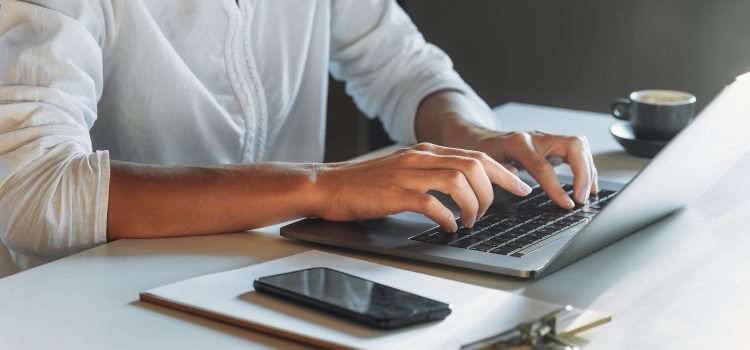So you’ve become your own boss – big congratulations! But whether you’re embarking on a side gig or freelancing full time, taking this new and exciting step can also be pretty scary.
One thing lots of new freelancers struggle to get to grips with are their tax liabilities. So we’ve put together a quick guide for freelancers on all things Self Assessment and tax returns to hopefully make things easier.
First off, what type of freelancer will you be?
The vast majority of freelancers will be sole traders. In fact, sole traders account for 60% of all UK small businesses.
The beauty of being a sole trader is that it’s incredibly easy to set up. However, effectively you and your business are the same entity, so should your business fail you’re also responsible for any debts or liabilities.
To get round this, some freelancers decide to set up as a limited company. This is especially appealing to those who want to keep their business debts and liabilities separate to their personal ones. You essentially become your own business’ director/employee – and yes, it’s more complicated than being a sole trader.
If you do go down this route, you’ll need to be aware of what this means for both your personal tax and your business’s tax. Do your homework and choose the path that’s right for you. But for this article, we’ll generally be focusing on sole traders.
Setting up as self-employed
Most freelancers decide to operate as a sole trader, so the first thing you’ll need to do is tell HMRC by registering for Self Assessment on the HMRC website. You’ll also need to register for Self Assessment if you’re the director of a limited company.
Be mindful of the registration deadline. You must register by the 5th October in the same calendar year that your first freelancing tax year ends.
Example:
The tax year starts on the 6th April each year. So say you became a freelancer in December 2020, your first tax year will end 6th April 2021, and you’ll need to register by 5th October 2021.
Once registered you’ll get a 10-digit Unique Taxpayer Reference (UTR), and will be able to access your personal online account ready to file your tax return when the time rolls round.
What are the important deadlines and dates for Self Assessment?
As mentioned, the UK tax year runs from the 6th April until the following 5th April. So the current tax year started 6th April 2025 and will finish 5th April 2026.
You must make 2 payments on account each year unless:
- Your previous Self Assessment tax bill was under £1,000
- You have already paid 80% or more of all the tax you owe
Each payment is half your previous year’s tax bill. Payments are usually due by midnight on the 31st January and 31st July.
How much tax do I need to pay?
When you’re employed, your employer sorts out your tax and NI contributions for you every payday. As a freelancer it’s up to you to pay the right amount of tax and National Insurance. The amount that you pay is based on how much profit you make. Your profits are what’s left over from your self-employed earnings once you deduct any allowable expenses.
Like people who are employed, you can earn up to the Personal Allowance threshold (currently £12,570) before you need to start paying any tax, though you’ll still need to report your earnings, and pay NI.
Anything you earn over that threshold will be taxed according to how much profit you make. Tax is paid in tax bands, or thresholds, so you might pay one tax rate for money you earn within one bracket, and then a different tax rate for money which falls into a different bracket.
Basic rate: 20% on earnings between £12,570 and £50,270
Higher rate: 40% tax on earnings between £50,271 and £125,140
Additional rate: 45% on earnings over £125,140
There are two extra bands for people in Scotland. See the government’s Income Tax in Scotland page for more information.
Hint: Put aside the cash in a separate account for every job you do!
Get it done sooner rather than later
We always recommend filing your Self Assessment as soon as possible (not least so you can get it out of the way and focus on business). Filing early also has other benefits, which we explain below.
Plan your cash flow better
Once you’ve worked out what your tax bill will be, it’ll be easier to see how much cash you really have. Being able to forecast your immediate and mid-term cash needs and expenses are an important part of running a successful business.
Knowing exactly how much your tax bill will be means you can ensure you have the right amount put aside. And if you think you may struggle to pay, it gives you time to contact HMRC and sort out a payment plan, rather than panicking at the last minute.
More time to prepare
Getting all the figures and evidence together for your tax return can take time, especially when you’re already busy. But by getting it done early you can do it in your own time, and in bitesize chunks, reducing the chances of problems and errors.
No missing the deadline!
Filing your tax return late is not a great move. Firstly, you’ll be hit with an automatic £100 filing penalty, regardless of what you owe. If it’s still late after 3 months, a late fee of £10 a day (up to a maximum of £900) will be applied.
After 6 months things get really expensive, with a penalty of £300 or 5% of your tax due (whichever is higher). This will happen again if it becomes over 12 months late. All of these penalties are one of top of the other, not in place of. It really does add up, which again is why you should contact HMRC (or your accountant) as early as possible if you’re worrying about how to pay.
Where can I find more information?
There’s a wealth of information about all this and more on the government’s Self Assessment tax returns pages. Don’t forget to check out our How to Become a Freelancer section too!







